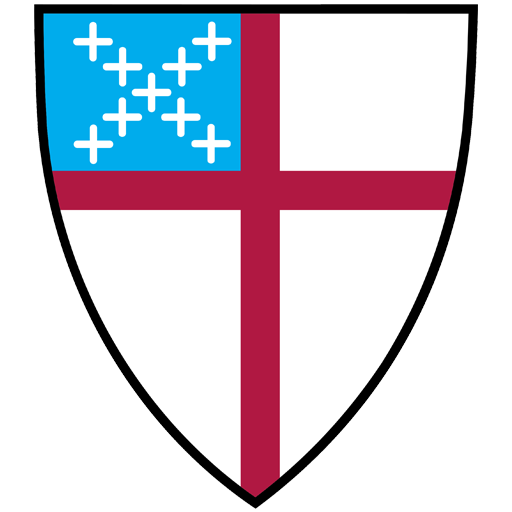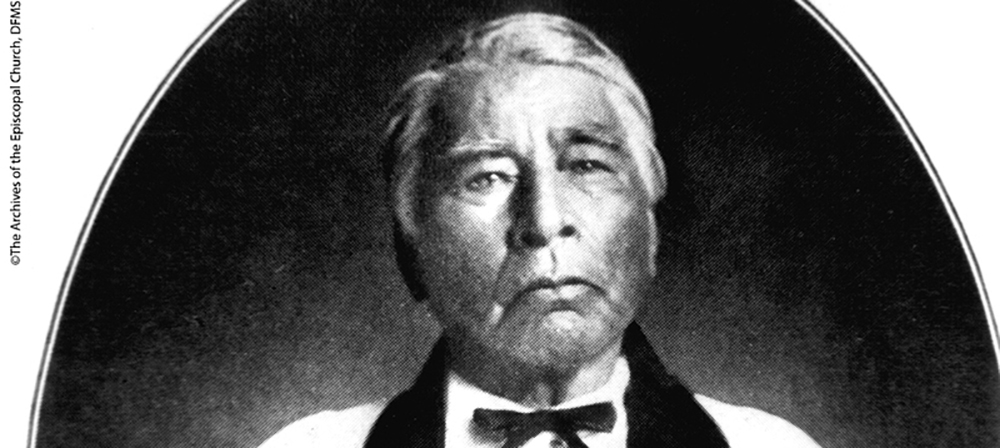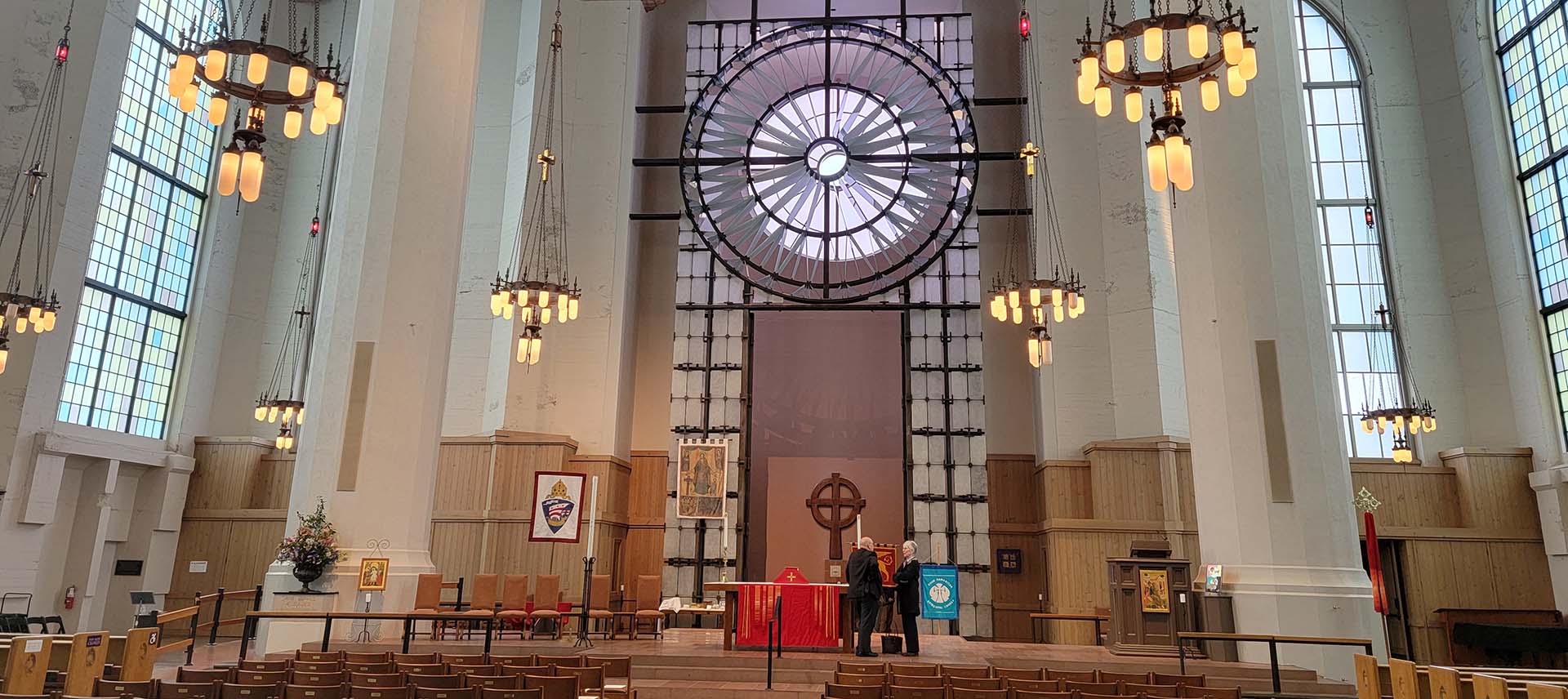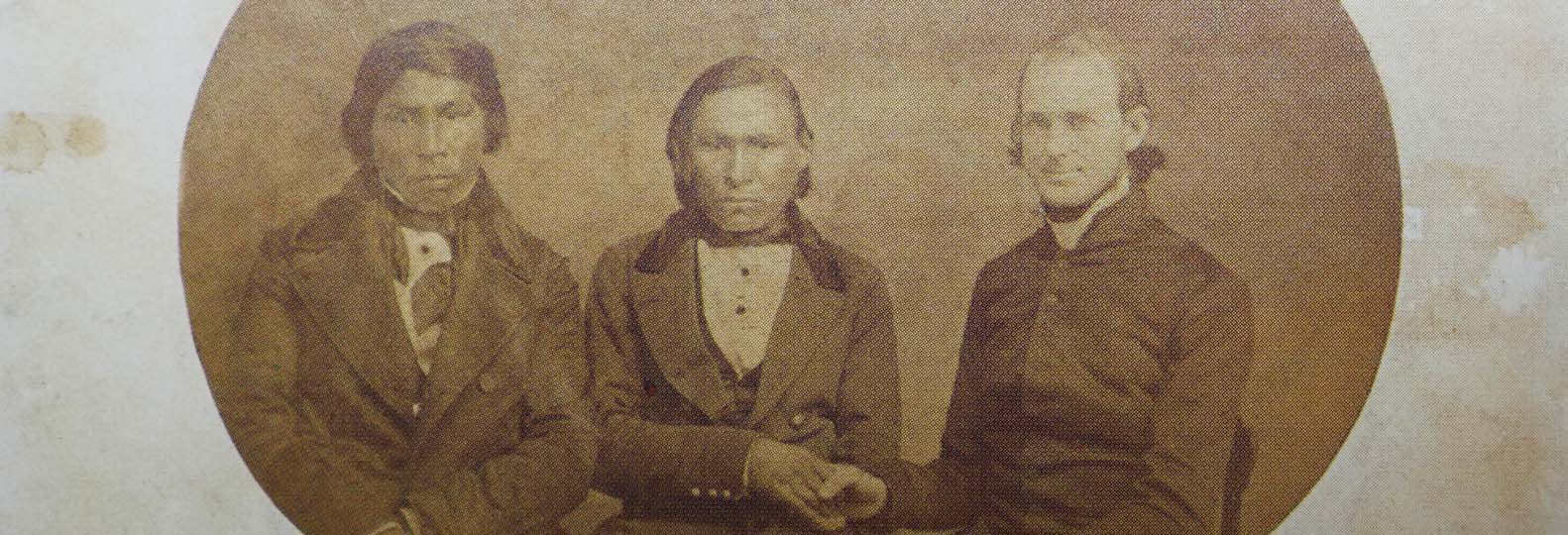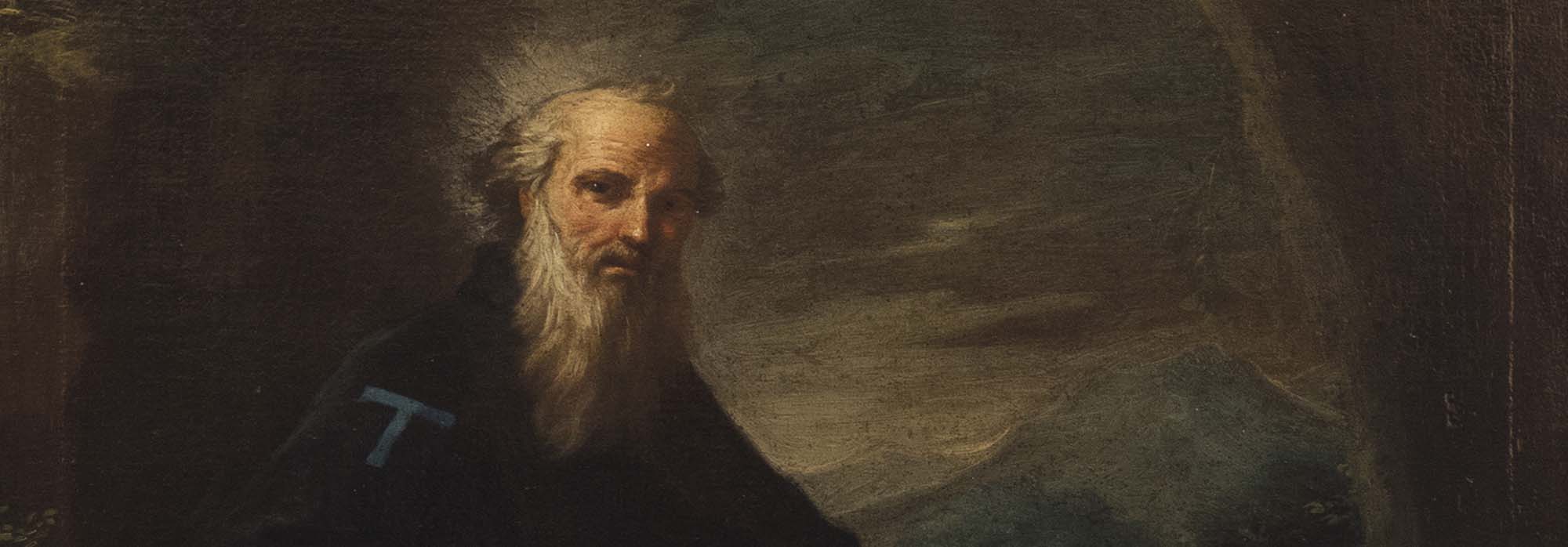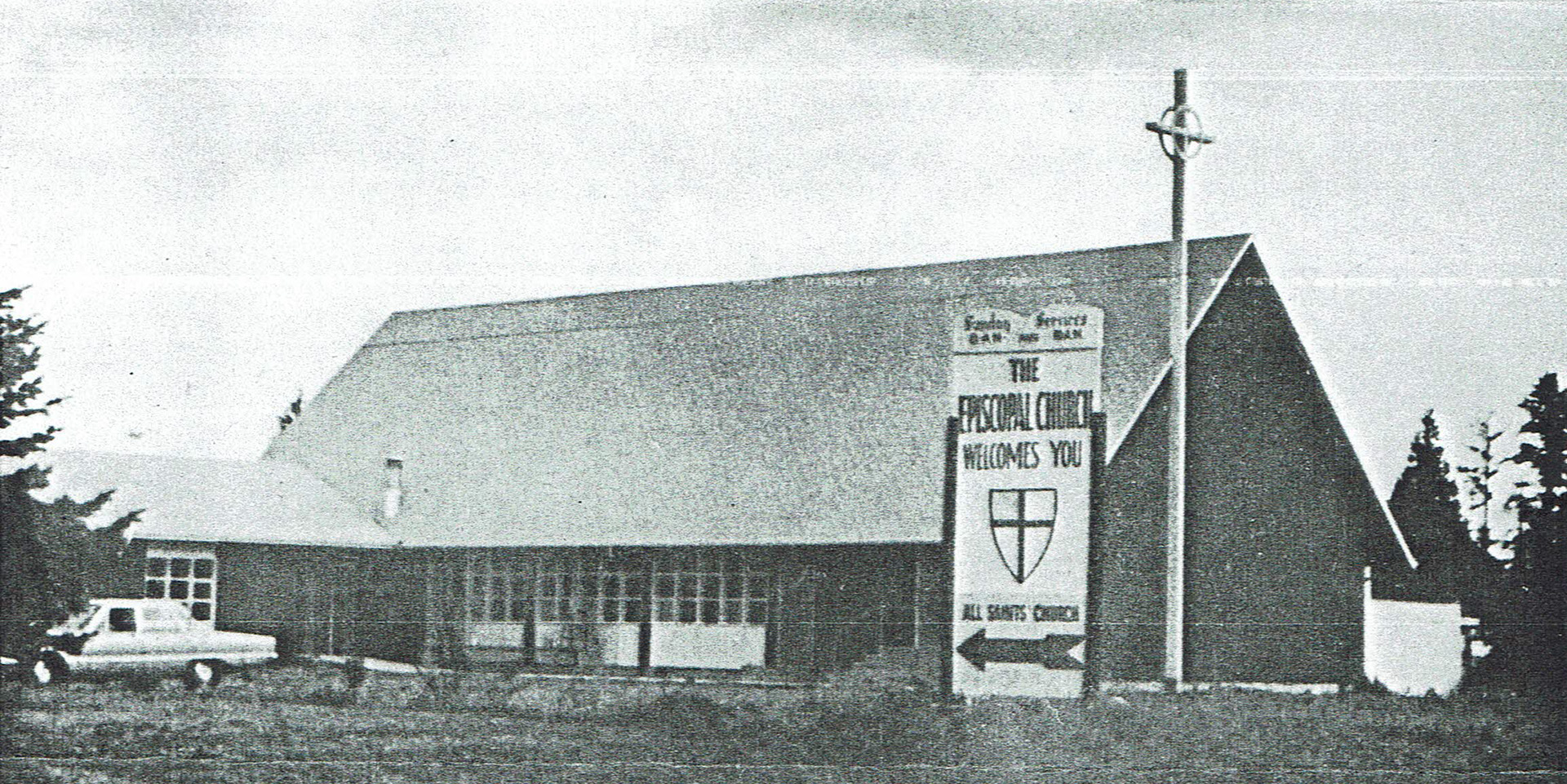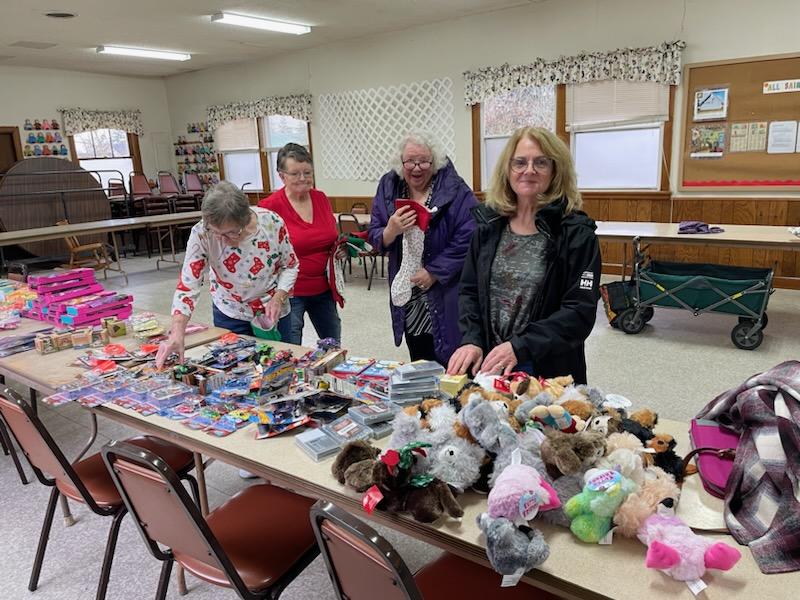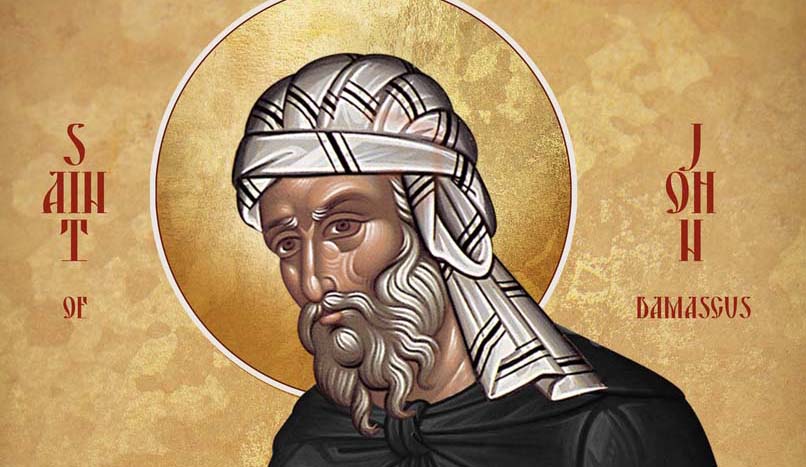Enmegahbowh, Priest and Missionary, 1902
John Johnson Enmegahbowh, an Odawa (Ottawa) Indian from Canada, was raised in the Midewawin traditional healing way of his grandfather and the Christian religion of his mother. He came into the United States as a Methodist minister in 1832. At one point, Enmegahbowh attempted to abandon missionary work and return to Canada, but the boat was turned back by storms on Lake Superior, providing him a vision…
